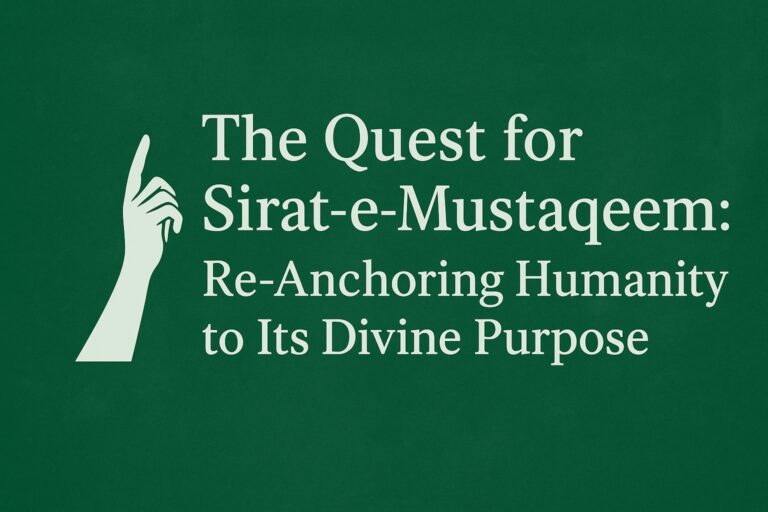SDG 13: Climate Action Pakistan’s Struggle Against Environmental Collapse
Introduction
SDG 13: Climate Action Pakistan, Climate change is no longer a distant threat; it is the defining crisis of our time. From unprecedented floods to devastating droughts, from rising seas to suffocating heatwaves, every region of the world is experiencing its destabilising force. The global community, through the adoption of Sustainable Development Goal 13 (SDG 13), has recognised the urgency of collective action to combat climate change and its wide-ranging impacts. Yet, the journey from commitments to concrete results remains uneven, leaving vulnerable nations to face disproportionate consequences.
For Pakistan, the challenge is particularly grave. Despite contributing minimally to global emissions, the country stands among the most climate-vulnerable in the world. Its fragile ecosystems, agrarian economy, and densely populated urban centres make it acutely exposed to climate shocks. Addressing this crisis demands not only robust policies and global cooperation but also a moral and spiritual awakening—one that draws strength from both universal principles of sustainability and the ethical teachings of Islam.

Despite contributing less than 1% of global carbon emissions, Pakistan, with a population of 240 million and an agrarian economy, is among the top four countries that are highly vulnerable to the disastrous impacts of climate change. The country is experiencing frequent and intense climate change impacts, including erratic rainfall patterns, catastrophic floods, and changes in weather patterns, resulting in the exacerbation of poverty, migration, food insecurity, economic insecurity, and health insecurity, all of which collectively disrupt livelihoods. For example, the flash floods of 2022 resulted in an economic loss of $30 billion, impacted 20 million individuals and displaced nearly 1.7 million individuals.
The study explores SDG 13: Climate Action in Pakistan’s Struggle Against Environmental Collapse within its global context, before focusing on Pakistan’s climate emergency, examining structural weaknesses, economic implications, and the guidance that faith offers in building resilience. Ultimately, it argues that climate action for Pakistan is not a choice, but a matter of survival, justice, and responsibility toward future generations.
Understanding SDG 13 Globally
Sustainable Development Goal 13 focuses on urgent action to combat climate change and its impacts. It calls for:
- Strengthening resilience and adaptive capacity.
- Integrating climate measures into policies and planning.
- Promoting awareness and capacity building.
- Mobilising international financial and technological support.
Climate change is not confined to one nation; it is a shared global challenge. Rising sea levels threaten coastal cities worldwide, desertification expands in Africa and Asia, and small island states face existential crises. The Paris Agreement of 2015 established a common global commitment, but implementation remains uneven.
Pakistan’s Climate Emergency

Pakistan is among the top 10 most climate-vulnerable countries, despite contributing less than 1% to global greenhouse gas emissions. The nation faces:
- Floods: The 2022 floods displaced millions, destroyed crops, and caused damage estimated at $30 billion.
- Glacial Melt: The Himalayan and Karakoram ranges are losing ice, threatening water supplies and increasing the risk of glacial lake outburst floods.
- Droughts & Heatwaves: Sindh and Balochistan frequently experience severe drought, while cities like Jacobabad face lethal heatwaves.
- Agriculture at Risk: Erratic weather patterns threaten Pakistan’s food security.
Structural and Policy Failures
- Lack of Climate Mainstreaming: Climate concerns remain secondary in national planning.
- Dependency on Fossil Fuels: Despite abundant solar and wind potential, Pakistan relies heavily on imported fuels.
- Urban Mismanagement: Heat islands, pollution, and unregulated urban expansion increase vulnerabilities.
- Weak Institutional Response: Fragmented governance and poor coordination between federal and provincial authorities stall progress.
Key Challenges
- Balancing economic growth with environmental sustainability.
- Mobilising climate finance and technology transfer.
- Enhancing disaster preparedness and community-level resilience.
- Controlling deforestation and ensuring ecosystem restoration.
The Islamic Perspective
Islam strongly emphasises responsibility towards the Earth and condemns wastefulness, exploitation, and corruption that destroy natural balance.
- Trusteeship (Khilafah): Humans are stewards of the Earth, entrusted by Allah to care for it.
“It is He who has made you successors upon the earth…” (Qur’an 35:39)
- Prohibition of Waste (Israf): Reckless consumption and extravagance are condemned.
“Indeed, the wasteful are brothers of the devils…” (Qur’an 17:27)
- Balance in Creation (Mizan): Nature is created in balance, and disrupting it brings harm.
“And He has set up the balance, so that you may not transgress in the balance.” (Qur’an 55:7–8)
- Warning Against Corruption (Fasad): Human arrogance and neglect cause ruin on land and sea.
“Corruption has appeared throughout the land and sea by [reason of] what the hands of people have earned…” (Qur’an 30:41)
From this lens, climate action is not merely policy—it is a moral obligation.
Economic Lens
Climate change has deep economic repercussions:
- Floods and droughts devastate agricultural output.
- Infrastructure destruction increases fiscal deficits.
- Health crises from heatwaves and pollution burden healthcare systems.
- Climate adaptation and renewable energy offer opportunities for green jobs and sustainable growth.
Strategic Recommendations
The recommendations here are strategic options. They must be piloted locally, tested, and adapted before full-scale implementation. Citizen participation and political will are non-negotiable.
- Integrate Climate into Development: Make climate resilience a cross-cutting theme in all planning.
- Renewable Energy Shift: Harness solar, wind, and hydropower potential.
- Disaster Preparedness: Build robust early-warning systems and resilient infrastructure.
- Community Engagement: Train local populations in sustainable farming, water management, and disaster response.
- Global Advocacy: Demand climate justice, including compensation for loss and damage.
Conclusion
Climate change is Pakistan’s defining existential crisis. Unless urgent action is taken, future generations will inherit floods, droughts, hunger, and instability. The Qur’anic call to avoid waste, protect balance, and reject corruption offers timeless wisdom to confront this challenge.
https://mrpo.pk/sdg-12-responsible-consumption-production/
Call to Action
For Pakistan, climate action is survival. It demands commitment from policymakers, responsibility from citizens, and support from the global community. By embracing faith, knowledge, and technology, Pakistan can rise as a resilient nation that honours its duty as a guardian of the Earth.



